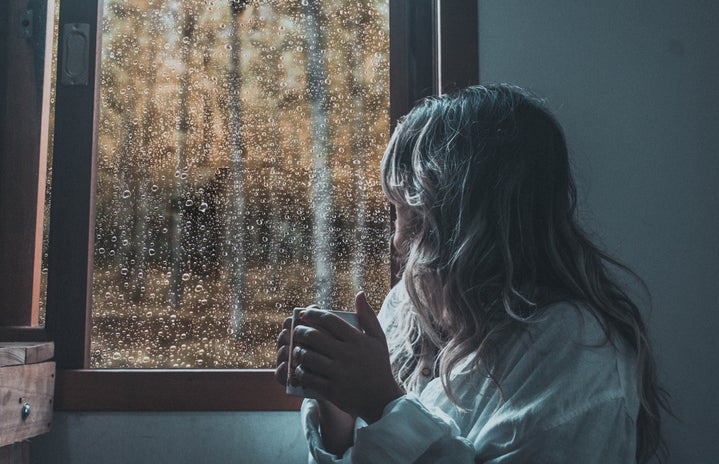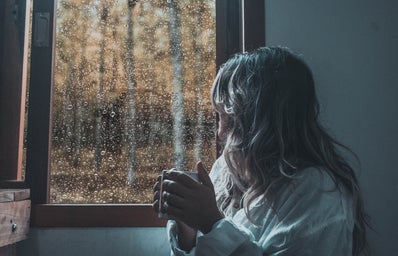Disclaimer: This article discusses the topic of rape, suicidal thoughts and PTSD. If you have been recently assaulted and might find this article triggering, please do not read further and take care of yourself. Please remember that there are resources available for you. If you are an ODU student, contact the ODU Women’s Center or ODU Counseling for a confidential consultation.
Or contact the RAINN National Sexual Assault Hotline, which is a great resource that has helped many women, at 1-800-656-4673
I know someone and she is one of my best friends who gave me permission to tell her story. She told me the highs and lows of healing post-trauma and how she came to be the woman she is now. Despite what I know through accounts, I don’t claim to be an expert, since the healing process is not the same for everyone. I will not put out real or fake names, as it is important to protect the privacy and the well-being of these people.
How It All Started | HerStory
It all happened around this time two years ago. When my best friend met her perpetrator, it was in broad daylight and she was walking with an acquaintance to a cafe. Her perpetrator happened to notice her enough to approach her in a friendly manner. At first, my best friend’s instincts told her that he looked very intimidating, but she still thought he was pretty handsome. After getting to know each other a bit better, he turned out to be a really nice and conversational person and seemed to bond with her quickly. She gave her perpetrator the benefit of the doubt and they exchanged numbers. They briefly met each other again at some social event, but no red flags had popped up. After finals, she went back to her hometown. They did not talk throughout that summer as both had their own jobs to do. When she got back to college in August to start that fall semester, they both wanted to meet up again, so they decided to grab dinner. However, it was then that red flags started to show up.
En route to the restaurant, the conversation quickly shifted from being “friends”–despite not encountering each other during the summer–to him nonchalantly talking about the women he had been intimate with in the past. She said he made comments on how “sexy” she ate her food and also called her occupation as a retail associate, “sexy.” She said the sexual tension flattered her, but it also made her uncomfortable. However, she thought nothing of it and felt it was her emotions overreacting.
A few months passed by. These are the chain of events that occurred leading up to the moment my best friend was assaulted.
During Fall break in October, she had her first intimate encounter with her perpetrator. While the night at his apartment was consensual, it seems there were many times where he wanted to take advantage of her. He took her to a movie theater’s parking garage and pressured her to drink when she was only 20 years old. One thing led to another, she made the first move onto him and they ended up having intercourse.
A week later was the second encounter–the night she was assaulted. She was already going through so much in her Fall semester. She was busy with classes, dealing with some personal issues and on top of that, developing a seasonal cold. Despite all signs telling her to not go see her perpetrator, she did anyway. In the middle of sleeping with him, he put her legs in a side position, which made her very uneasy. When my best friend told him, “No!” twice, he proceeded to put himself in her, assaulting her. Words cannot describe the amount of fear and pain she was going through. After her screaming at him to stop, he complied, but he never asked her if she was okay or what, “No!” meant. She eventually had the courage to leave his place. When she got home, everything seemed blurry and she only recalls seeing herself in her kitchen and a knife nearby, but the suicidal thoughts felt like the only solution to end her pain.
None of her “friends” told her what she went through was assault as they said it was a form of “miscommunication.” Because of that, it took a month for my best friend to admit she was raped. She was spiraling into PTSD as the trauma affected her everyday life. She would get anxious if any man was near her while walking home, she would cry late at night, but she would still pretend that everything was okay. Following the advice of another close friend of ours, my best friend made the decision to get help. If it wasn’t for her school’s counselors or the health center confirming the assault, she would have been in denial for many more months.
Post-Trauma | Healing and Becoming
Three months later, she was not even close to healing one bit. Her life seemed “content” when the spring semester came around. My best friend was no longer in contact with her perpetrator. She had a job that paid well, was getting more involved with student organizations and was taking 18 credits. At a big school event, she met ”the most beautiful man” who impacted her greatly.
He was gorgeous, had a kind heart and was charming. He went to another university and was only visiting for a few days. She told me after getting to know each other, they were like magnets. So, of course, they were intimate fast. My best friend said that she was so scared during the intimacy. It felt like for that one second this guy was her rapist all over again. Her body froze for a few seconds as she wanted to scream and kick him off of her. She then looked at him and realized that he wasn’t the man that hurt her. He then had to leave to go back to his school. She came to me crying in my arms for a long time, overwhelmed with emotions. Although she was glowing and felt butterflies whenever she talked about him, she was still empty and depressed.
Inviting this new guy into her life made her realize that there are beautiful people that exist in the world–people with good intentions who will encourage you during your hardest moments. It was difficult to admit what happened to her, but it was more difficult to accept it. She had already seen the bad that the world gave her, but she didn’t let those things stop her from enjoying the beautiful moments in her life. At that point, she chose to not be afraid anymore. She kept her head high and took things one day at a time. She rebuilt herself into a new woman, retaking that power that was stolen from her.
Despite not taking legal action towards her perpetrator, her emotional well-being was more important to focus on. She finds that you will go through many hardships in your life, but it’s how you ultimately cope and react towards the aftermath. Accepting and knowing that it’s not your fault is a big step in the healing process. She finds that it’s important to allow yourself to grow, acknowledge and tolerate the difficult feelings and know that healing takes time.
What She Learned and What She Wants Other Girls to Know
Survivors get so sick and tired of being labeled, “the victim” or “a part of a statistic” that they will quickly develop a sense of self in order to avoid being called those words. Before you go ahead and start blaming my best friend for the, “would’ve, should’ve or could’ve,” this is one of the biggest reasons why women do NOT report rape or any form of sexual assault. She has heard these sayings plenty of times before,
“You should’ve told him to take you home or gotten an Uber the minute you felt uncomfortable.”
“The responsibility you need to accept is that YOU’D stayed when you knew you could’ve left.”
“Thank God YOU left his place, or else he would’ve murdered or ‘all-the-way’ raped you.”
Why does the societal norm continue to tell women how they SHOULD react to trauma? Rape culture does not understand psychology or the concept of rape and sexual assault. According to the RAINN Organization, statistics show that sexual assault happens commonly when the victim knows her perpetrator, as opposed to a stranger. If at any point no consent is discussed or shown, it becomes sexual assault.
Are there such things as healing and recovery from sexual assault? Yes, but nobody said healing is ever easy. It does not take overnight and is one of the most painful and emotional changes anyone can go through. Life may go on, but memories will stay for the rest of your life. Survivors are worthy of being loved, they are capable of loving and are absolutely some of the strongest people. My best friend happened to become one of these women. She does not think she’s completely healed, but that’s okay. She protects her peace and she’s keeping it.
As always,
Good luck, babes.



